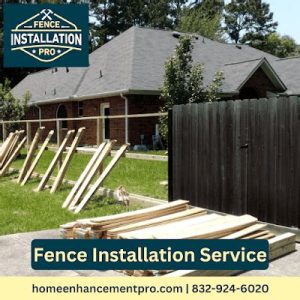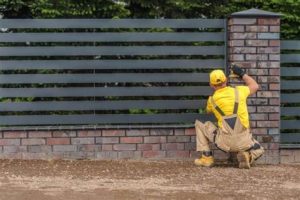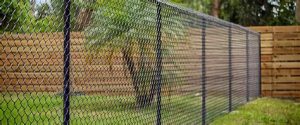Electric fencing is an increasingly popular choice for property owners looking to enhance security and keep livestock in check. However, before embarking on this project, it’s essential to understand the various costs associated with electric fence installation. From materials and labor to factors that can influence the overall price, being well-informed can help you make better financial decisions. In this article, we’ll delve into the nitty-gritty of electric fence installation costs, providing you with insights on estimating expenses, understanding labor charges, and identifying ways to save money. Whether you’re a first-time installer or seeking to upgrade your current fencing, our comprehensive guide will equip you with all the knowledge you need to ensure a successful and cost-effective installation.
Understanding Electric Fence Installation Costs
When considering an electric fence for your property, it’s essential to understand the various factors that contribute to the overall installation cost. Several elements can affect the price, including the type of electric fence you choose, the extent of the area that needs to be fenced, and any particular requirements related to your installation site.
Typically, the cost of electric fence installation can be broken down into two main components: materials and labor. As with any installation project, how do these costs vary depending on specific conditions? Below is a table that outlines the average costs associated with both materials and labor for electric fence installation:
| Cost Component | Average Cost ($) |
|---|---|
| Materials (fence posts, wiring, energizers, insulators) | 500 – 1,500 |
| Labor (installation per hour) | 30 – 100 |
| Total Estimated Cost for a Standard Installation | 1,000 – 3,000 |
It’s important to note that these figures can fluctuate based on your location and the specific requirements of your project. For example, if your property has uneven terrain or requires more extensive planning and engineering, the costs may be higher.
Moreover, different types of electric fences, such as temporary or permanent installations, can also impact your budget. Some might have a lower upfront cost but require ongoing maintenance or replacement parts, whereas others might be more expensive initially but offer greater durability and efficiency.
Understanding electric fence installation costs requires careful consideration of materials, labor, and unique site factors. By doing so, you are better equipped to make informed decisions about your electric fencing needs.
How Do You Estimate Material Expenses?
Estimating the material expenses for an electric fence installation is crucial for budgeting effectively. To achieve an accurate estimate, you need to consider several key components:
| Material | Estimated Cost per Unit | Quantity Needed | Total Cost |
|---|---|---|---|
| Electric Fence Wire | $0.15 per foot | 500 feet | $75.00 |
| Insulators | $0.50 each | 50 | $25.00 |
| Support Posts | $3.00 each | 20 | $60.00 |
| Electric Fence Controller | $100.00 | 1 | $100.00 |
| Batteries | $50.00 each | 2 | $100.00 |
| Total Estimated Material Cost | $460.00 | ||
To provide an accurate estimate when assessing how do material expenses factor into your overall electric fence installation cost, follow these steps:
- Determine your perimeter: Measure the area you want to enclose to figure out the length of the fencing required.
- Choose your materials: Select wire thickness, pole types, and any other accessories you need based on your specific needs.
- Calculate the quantity: Based on your perimeter and material choices, calculate how much of each material you will need.
- Get local pricing: Prices can vary based on location, so it’s wise to check local suppliers for the most accurate costs.
By following these guidelines, you’ll be able to estimate your material expenses accurately, ensuring you remain within budget when planning your electric fence installation.
Labor Costs: What You Need to Know
When considering electric fence installation, understanding the labor costs involved is crucial to accurately estimating the total expenditure. Labor costs can vary widely based on several factors, including the complexity of the installation, the experience level of the contractors, and regional wage differences.
Typically, professional installers charge either a flat fee or an hourly rate. Hourly rates can range from $30 to $90 per hour, depending on the aforementioned factors. If the installation requires extensive groundwork or running wires over long distances, the total labor hours will increase, thus raising costs.
In addition to basic installation labor, some jobs may require specialized skills, which can further elevate costs. For example, if your electric fence system includes advanced technology, such as automatic gates or surveillance features, you might encounter higher expenses due to the expertise required for installation.
To understand how do labor costs fit into your budget, it’s wise to obtain multiple quotes from different contractors. This approach not only helps you gauge a fair market price but also provides insight into various installation methods and materials recommended by industry professionals.
Consider asking potential installers about their experience with electric fence systems, their warranty terms, and any additional fees that may apply. Some contractors may include costs for materials or equipment rentals in their labor fee, while others may list these as separate expenses.
Overall, being informed about the labor costs associated with electric fence installation ensures that you can plan your budget effectively and make the right choices for your fencing needs.
Factors That Influence Overall Installation Price
When considering how to install an electric fence, it’s essential to understand the various factors that can influence the overall installation price. Below are some of the key elements that can affect the cost of your electric fence installation:
| Factor | Description | Impact on Cost |
|---|---|---|
| Fence Length | The longer the fence, the more materials and labor will be required. | Higher |
| Type of Fence | Different types of electric fences (e.g., wire, mesh) can have varying costs. | Variable |
| Location | Regional pricing and accessibility can affect material and labor costs. | Higher in remote areas |
| Permits | Some jurisdictions require permits which can add to the overall cost. | Additional fees |
| Terrain | The type of ground and obstacles (like trees or rocks) can complicate installation. | Higher if challenging |
| Quality of Materials | Higher quality materials can increase initial costs but may lead to lower maintenance needs. | Higher for premium materials |
| Labor Rates | Contractor fees can vary based on experience and demand in your area. | Variable based on region |
When you ask yourself how do these factors play into your overall budget, it becomes clear that a comprehensive approach is necessary to accurately estimate costs. By considering these elements, you can make informed decisions that align with your budget and requirements.
Saving Money on Electric Fence Installation
Installing an electric fence can be a significant investment, but there are several ways to save money without compromising on quality. Here are some strategies to consider:
By implementing these strategies, you can effectively reduce your electric fence installation costs while ensuring that you still achieve desired results.
Frequently Asked Questions
What factors influence the cost of electric fence installation?
The cost of electric fence installation can be influenced by factors such as the length of the fence, type of materials used, labor costs in your area, and any additional features like gates or alarms.
Is it cheaper to install an electric fence myself?
While DIY installation can save on labor costs, it’s important to consider your skill level and whether you’ll need to purchase tools or equipment. A poorly installed fence can lead to higher long-term costs.
What are the average costs associated with electric fence installation?
On average, electric fence installation can range from $1 to $3 per linear foot, depending on the complexity of the job and materials selected. Additional costs may include permits and inspections.
Are there any ongoing costs related to electric fences?
Yes, there are ongoing costs associated with maintaining an electric fence, including electricity fees, battery replacements (if applicable), and periodic repairs or replacements of damaged components.
Do I need a permit to install an electric fence?
Permit requirements vary by location. It’s crucial to check local zoning laws and regulations before installation, as some areas have specific restrictions regarding electric fences.
What type of electric fence is best for my property?
The best type of electric fence for your property will depend on factors such as the type of animals you’re trying to contain or deter, the terrain, and specific security needs. Options include permanent, temporary, and hybrid systems.
Can electric fences be used for all types of animals?
Electric fences can be effective for a variety of animals, including livestock and pets. However, it’s essential to choose the right type of fence and energizer suitable for the specific animal species.





